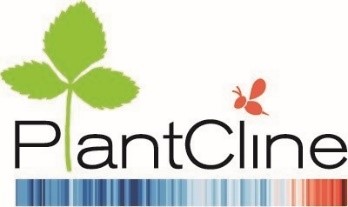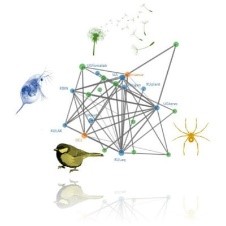PlantCline-EVENET summer school – Evolutionary Applications
Target audience: Ma & PhD students
Date: 20-22 September 2022
Organisation: UGENT
Location: campus Ledeganck
Objectives : have a 3 days meeting with
– Specialists presenting the topic in a wider perspective, functional biology/ecology and eco-evo. Setting the scene for discussion
– keynotes and student talks
– possibility to get 3 ECTS credits (given submission essay, critical note, 2000 words)
Motivation of the summer school
Most of current global environmental problems are associated with biodiversity loss. Biological invasions, sustainable food production, and the spread of diseases are examples of societal challenges that are anchored in ecology. Human pressures from climate change, land-use intensification and pollution affect ecological processes and their outcomes. The mitigation of global change impacts therefore relies on a thorough understanding of the underlying ecological drivers. There is accumulating evidence that these pressures also exert evolutionary responses at contemporary time scales, and that these responses have the potential to feedback on the population and community dynamic of the set of involved species. These eco-evolutionary dynamics may hamper or facilitate recovery and resilience against these environmental pressures. We here bring together specialists in the field of applied evolutionary biology and ecology to demonstrate the significance of evolutionary biology for the optimisation of ecological applications. Experts will present a broad perspective on the fundaments and methodologies of eco-evolutionary applications. We invite students and early career researchers to present their research that addresses important questions in the fields of eco-evolutionary applications like ecotoxicology, climate change, diseases outbreaks, pest control and biological invasions. The summer school will be organised to stimulate discussions among attendees to advance insights on the role of ecology and evolution to mitigate environmental problems associated with global change. Students can receive 3 credits upon handing in a perspective note (2000 words) on the importance of evolution for defined ecological applications.
Tentative schedule
| Tu 20/9 | 8.30 Dries Bonte: opening Stress & adaptations 9.00-10.00 Robby Stoks/Julie Verheyen (KU Leuven): Evolution of combined stressor effects discussion/ Student talks 11.00 Timo Hytönen (Helsinki). The genetic and environmental control of flowering Student talks/discussions – – – – – The eco-evo of microbiomes 14.00 Ellen Decaestecker (KULAK): microbiomes and their role in adaptation to environmental change Student talks/discussion 16.00 Nicky Wybouw (Ugent): The potential and risks of implementing heritable symbionts as tools in integrated pest management Student talks/discussion |
| We 21/9 | Global (& local) warming 9.00 Kristien Brans (KU Leuven): Cities as macrocosms for climate change responses Student talks/discussion 11.00 Sonia Osorio (Malaga): Metabolomics to understand climate changes responses and adaptations Student talks/discussion – – – – – Pest management 14.00 Johan Stenberg/Ivan de la Cruz (SLU): the eco-evolutionary background of plant responses to herbivory Student talks/discussion 16.00 Thomas Van Leeuwen (Ugent): the genetic of pesticide resistance Student talks/discussions |
| Th 22/9 | The eco-evo of population spread 9.00 Justin Travis (Aberdeen) Eco-evolutionary dynamics of range shifts, and expansions Student talks/discussions 11.00 An Martel (Ugent). The ecology of disease spread: fungal threats to salamanders Student talks/discussions – – – – – Upscaling eco-evolutionary dynamics 14.00 Yves Van der Peer (Ugent): The eco-evo of genome duplications Student talks/discussion Student talks/discussions 16.00 Lesley Lancaster (Aberdeen) Macro-evolutionary drivers of biodiversity Student talks/discussions – – – – – Goodbye reception & dinner |
One thematic session consists of
1 Keynote lecture: 40(45)+20(15) minutes
2 Student talks: 12+3 minutes
And a break of half an hour (ending at 12.30 in the morning; 17.30 in afternoon)
Deadlines
Student abstract submission by July 31st
Abstract selection oral talks by August 15th
Participation and registration:
The number of participants will be limited to a maximum of 40. The number of participants is limited to ensure an active participation of MSc and PhD students by (1) seeking active engagement in the sessions discussion as well as the (2) possibility to present their research by means of an oral or poster presentation in the foreseen time slots. The summer school is free, except for the dinner on Thursday evening (50 Euro). The selection of the participants will be based on the relevance of the summer school for their training, and based on a ‘first come, first served’ principle.
We want to draw attention that this training event can only be made possible because a considerable investment is made by the organising team and confirmed speakers on behalf of young researchers to provide them with access to opportunities to develop their knowledge, expertise and professional skills. Hence, every ‘no show’ at the event comes at a considerable cost to the organising team and, additionally, represents a missed opportunity for other participants who were unable to sign up and ended-up at our waiting list. By registering to this event, we expect an engagement from your side to effectively show up. We do however entirely understand that some participants can be prevented from attending the event, and will therefore ask them to cancel their registration as soon as this is known. We ask everyone to pay the 50Euro fee for the dinner to complete registration. Attendees not wishing to join the dinner, will be refunded at arrival. Cancellations up to three weeks before the event (August 31st) will also be refunded, late cancellations not.

